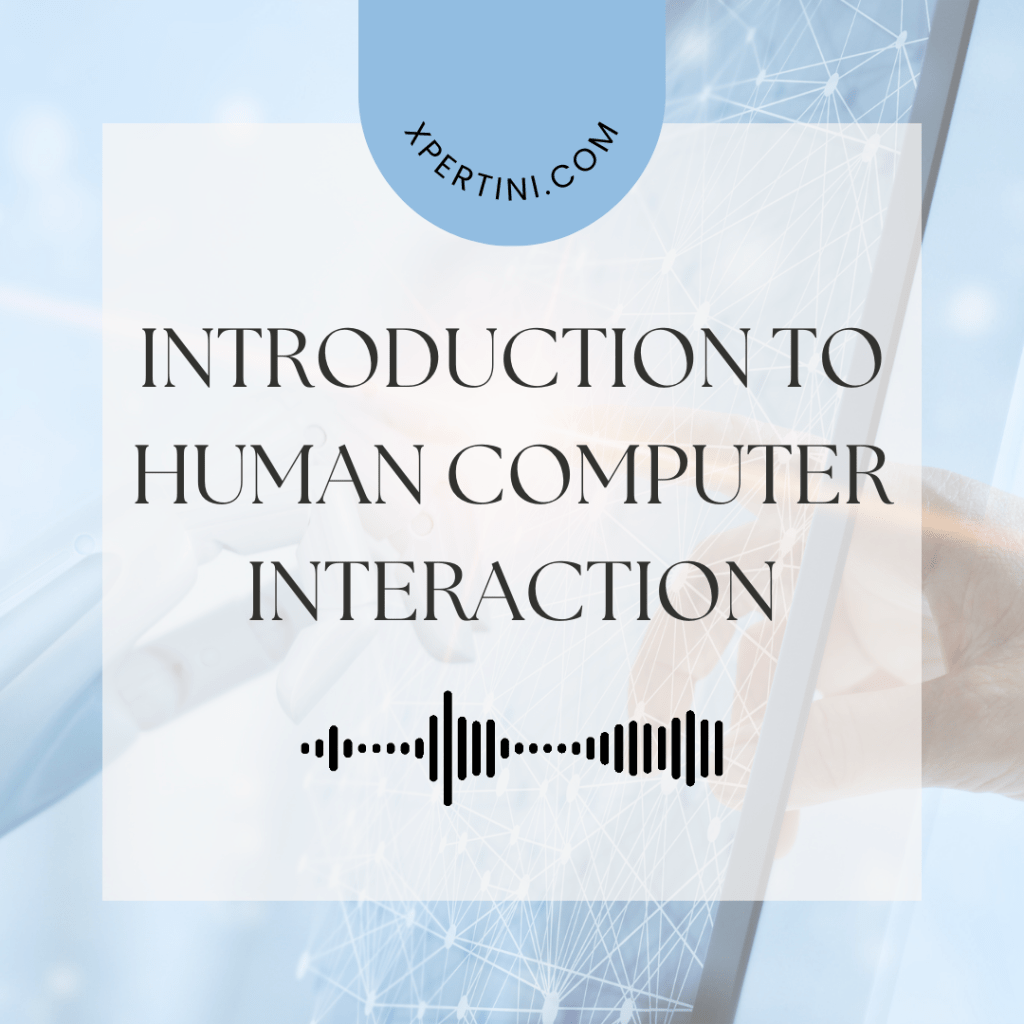Introduction to Human-Computer Interaction
Course Summary
In this comprehensive Human-Computer Interaction (HCI) course, participants go through the evolution of HCI from its nascent stages to contemporary interfaces. Delving into the historical perspective, learners uncover pivotal milestones and key contributors who shaped the trajectory of HCI, laying the groundwork for modern interface design.
The course strategically unfolds with a focus on user-centered design principles, elucidating the significance of placing end-users at the core of interface development. Practical applications are exemplified through enlightening case studies, offering a tangible understanding of how user-centricity directly influences design success.
Usability principles play a pivotal role in interface design, delving into the art of crafting user-friendly experiences that go beyond mere functionality, connecting with users on a deeper level. Dive into the exploration of creating interfaces that not only serve their purpose but also strike a chord with users. Real-world case studies serve as invaluable tools, shedding light on successful usability implementations and offering learners tangible insights into the subtleties of developing seamless digital experiences.
Psychology’s pivotal role in HCI is dissected, elucidating how user behavior and cognitive processes underpin interface design. The application of psychological principles becomes tangible through relatable examples, offering a profound understanding of the symbiotic relationship between human psychology and technology.
As the course progresses, learners are ushered into the domain of emerging trends in HCI, where they gain insights into the latest technologies shaping the field. The impact of these emerging technologies is meticulously analyzed, preparing participants for the landscape of HCI.
In HCI projects, it’s crucial to break down communication strategies, highlighting the importance of seamless collaboration and tools that cultivate a unified design environment. Participants stand to develop a grasp of how communication plays a pivotal role in shaping the success of HCI endeavors.
Usability testing takes the spotlight as participants explore the meticulous planning and execution of tests, coupled with the interpretation and application of results. This pragmatic approach ensures that learners are well-versed in the practical aspects of ensuring interface effectiveness.
Navigating through challenges in user interaction, the course imparts strategies for creative problem-solving in design. By addressing common obstacles, participants cultivate a problem-solving mindset crucial for success in HCI.
The course culminates with a comprehensive overview of diverse career opportunities in HCI. Participants gain insights into the varied career paths, skill sets, and qualifications required for different roles, empowering them to make informed decisions about their professional journey in the field of Human-Computer Interaction.
Course Overview
This course provides a foundational understanding of Human-Computer Interaction (HCI), exploring the relationship between users and computers. Students will delve into the historical evolution, key concepts, and practical applications of HCI, preparing them for careers in user experience design, interface development, and related fields.
Course Objectives
- Understand the significance of HCI in modern technology.
- Analyze the evolution of HCI and its impact on user experiences.
- Gain practical skills in designing user interfaces.
- Explore usability principles and user-centered design.
- Evaluate the role of psychology in HCI.
- Investigate emerging trends in interaction design.
- Apply HCI principles to enhance user satisfaction.
- Demonstrate proficiency in usability testing.
- Develop critical thinking in solving user interaction challenges.
- Explore diverse career opportunities in the field of HCI.
Course Outcomes
- Identify the fundamental principles of HCI.
- Analyze historical developments in HCI.
- Design effective user interfaces.
- Apply usability principles in interface development.
- Understand the psychological aspects of user interaction.
- Evaluate and adapt to emerging trends in HCI.
- Demonstrate effective communication through HCI design.
- Conduct usability testing and provide constructive feedback.
- Develop problem-solving skills in user interaction challenges.
- Explore and prepare for diverse career opportunities in HCI.
Course Audience
- Aspiring UX/UX Designers
- Computer Science Students
- Software Developers
- Product Managers
- Anyone interested in enhancing user experiences

